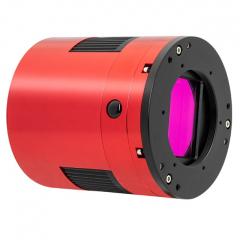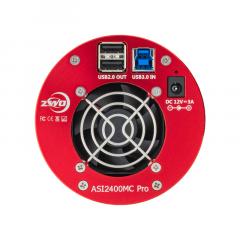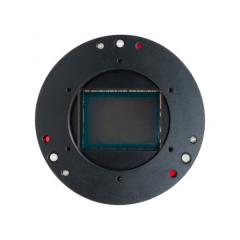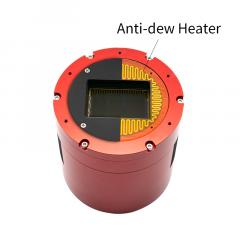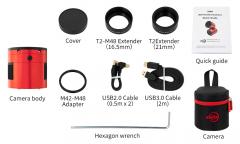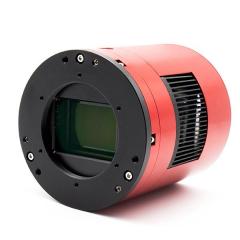ASI2400MC-Pro Vollformat Farbkamera
Bauart: CMOS-color
Sensordiagonale: 43,3mm
Auflösung: 24MP
Transportgewicht: 1kg (Versandkosten)
EAN Code:
Lieferbarkeit
Wien: Wir bestellen gerne für Sie!
Linz: Wir bestellen gerne für Sie!
Lager: bitte anfragen!
Öffnungszeiten
Woanders billiger? weiter...
3799.90 EUR
(inkl. MWSt)
zzgl. Versand
Warenkorb anschauen:
0 Produkt(e)
Total 0 EUR
ASI2400MC-Pro Full Frame One Shot Color Camera
The ASI2400MC Pro is the first CMOS Astro Camera which adopts Sony IMX410 Sensor. Some of the highlights include:
- Sony IMX410 full-frame format sensor – giving a great field of view
- 14-bit ADC – giving high dynamic range
- 24 MP sensor with a pixel size of 5.94 um – large sensor and large pixels to capture amazing detail
- An incredibly large well depth of 100ke- – no need to worry about saturating stars
- Ultra-low readout noise of 1.1e- – bringing out more details in your images with improved dynamic range
- Zero amp-glow – one thing less to worry about in post-processing.
Considering the above specifications and a peak QE of around 80%, the ASI2400MC Pro is born to be another great innovation of ZWO in the field of full-frame cooled OSC astronomy cameras.
Full Frame OSC Camera
The ASI2400MC Pro uses full-frame format, the sensor length and width are 36mm * 24mm and the diagonal is 43.3mm. Currently it is only available in a one-shoot-colour (OSC) version. OSC is very suitable for those just beginning with astrophotography, but considering the fantastic specifications of this camera, we are sure that many seasoned astrophotographers will take a liking to it as well. If you don’t have the time to take a lot of sub-exposures with different filters, or money to spend on accessories like filters and filter wheels, this camera will deliver amazing images!
IMX410 Backlit Sensor
Sony’s back-illuminated CMOS image sensor improves the sensitivity and noise reduction – the key factors to enhancing image quality. It does this by radically realigning the fundamental pixel structure from front-illumination to back-illumination, while still retaining the advantages of CMOS image sensors such as low power consumption and high-speed operation.
With a conventional front-illumination structure, the metal wiring and
transistors on the surface of the silicon substrate that form the
sensor’s light-sensitive area (photo-diode), impede photon-gathering
carried out by the on-chip lens. A back-illuminated structure minimizes
the degradation of sensitivity to the optical angle response, while also
increasing the amount of light that enters each pixel due to the lack
of obstacles such as metal wiring and transistors. These components have
been moved to the back-side of the silicon substrate.
#ZWO-2025
